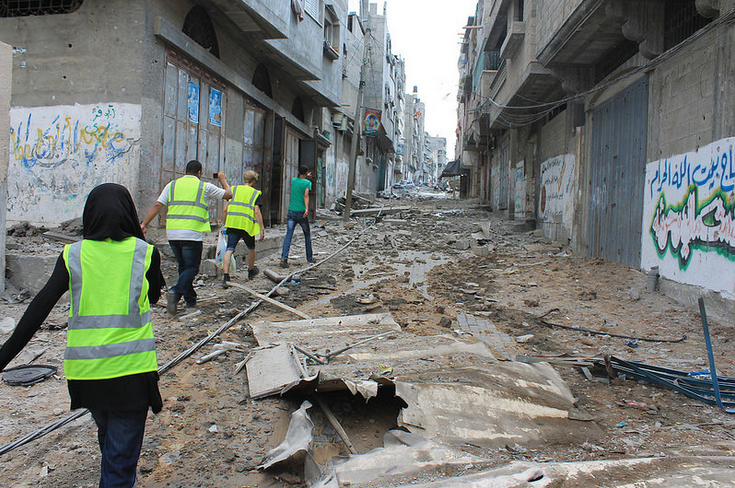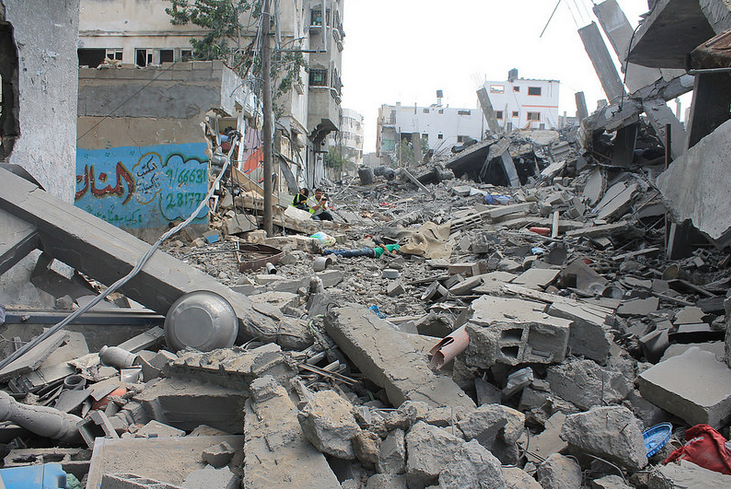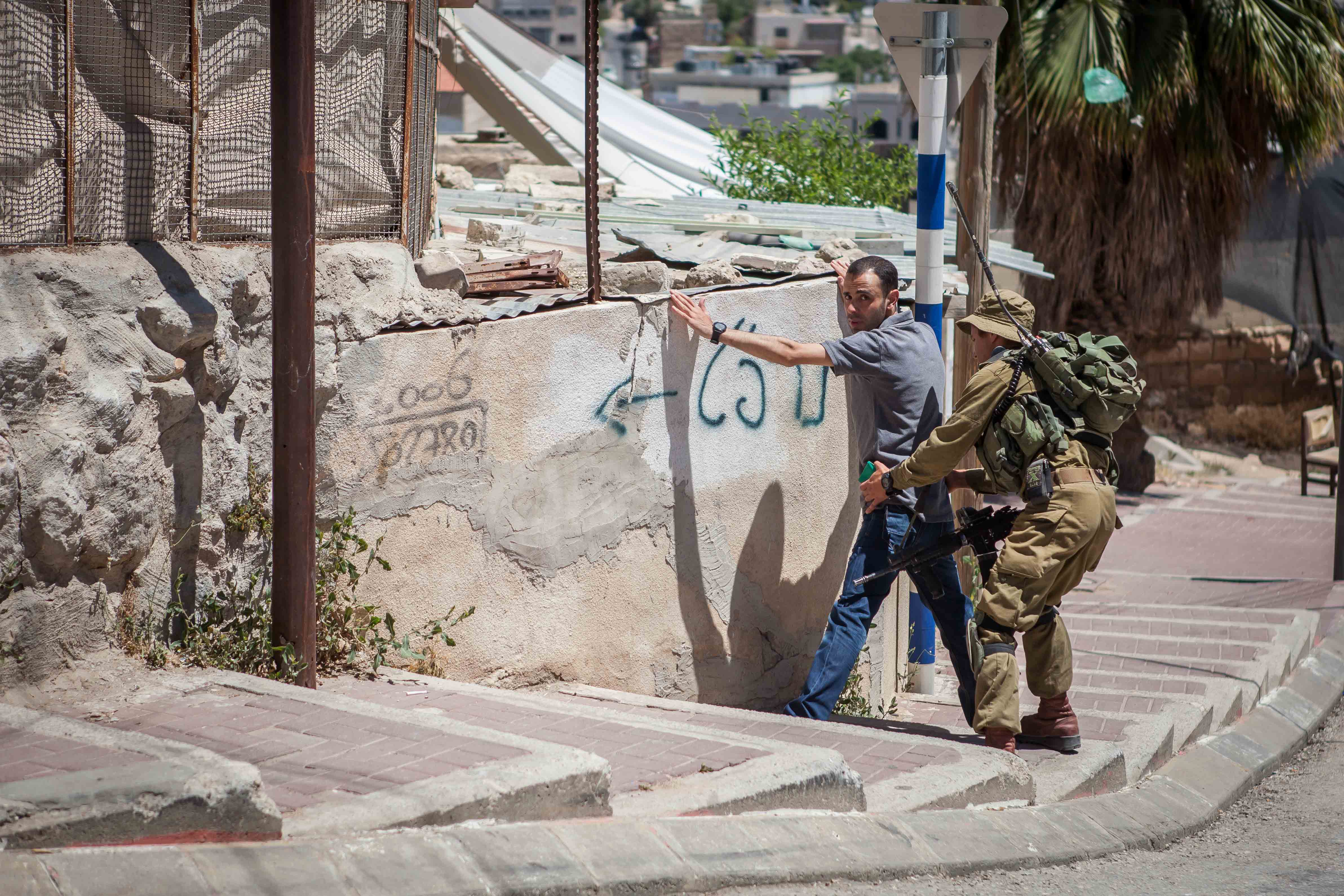Tag: Video
-

Video: In memory of Salem Shammaly
27th July 2014 | International Solidarity Movement | Gaza, Occupied Palestine In honour of the memory of Salem Khalil Salem Shammaly, the International Solidarity Movement (ISM) has published all the raw footage, taken by Mohammed Abedullah, of Salem’s murder. Yesterday during the ceasefire, Salem’s body was finally able to be recovered and buried after five long days. Salem’s cousin,…
-

Wounded man killed by Israeli sniper on camera identified
22nd July 2014 | International Solidarity Movement | Gaza, Occupied Palestine The injured young man who was shot dead on camera by an Israeli sniper two days ago has been identified as Salem Khalil Salem Shammaly, a 23-year-old resident of Shajiya. After Salem was murdered, the rescue team was unable to recover his body, which like…
-

VIDEO: Israeli soldiers and settlers attack Palestinians and ISM volunteers in Hebron
2nd July 2014 | International Solidarity Movement, Khalil Team | Tel Rumeida, Occupied Palestine For the past two days in al-Khalil (Hebron) Israeli soldiers have stopped and searched many Palestinians in Tel Rumeida. At approximately 22:00 two nights ago, a colonial settler began aggressively photographing Palestinian children who were playing football in the street on Tel Rumeida hill. Two ISM activists began…
